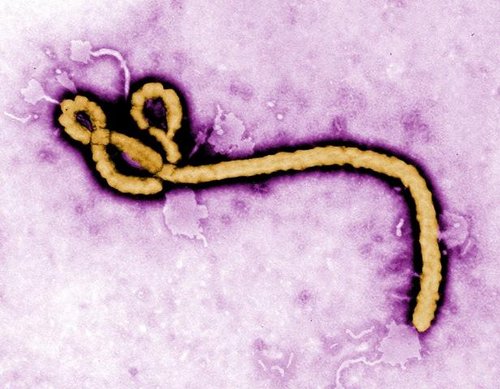Viral Haemorrhagic Fever (VHF) (Viral Haemorrhagic Fever (VHF))
Microbiology
Notes

- The information given here is intended for use by healthcare professionals. Please see Lab Tests Online-UK for more general advice, links and background.
- VHF includes Ebola, Marburg, Lassa, Congo-Crimean Haemorrhagic Fever and others
- Only tested on specific request
- The Clinical Microbiologist must be contacted urgently to discuss the case prior to any samples being taken for analysis is Pathology
- Viral haemorrhagic fevers are a group of illnesses caused by several distinct families of viruses: arenaviruses, filoviruses, bunyaviruses and flaviviruses.
- Some of these cause relatively mild illnesses, whilst others can cause severe, life-threatening disease.
- The viruses depend on their animal hosts for survival, so they are usually restricted to the geographical area inhabited by those animals.
- The viruses are endemic in areas of Africa, South America and Asia.
- The incubation period varies according to the type of virus, but is rarely longer than 21 days.
- Symptoms also vary according to the type of virus, but initially they generally include fever, fatigue, sore throat, myalgia, weakness .
- Patients with severe disease may show signs of bleeding under the skin, from body orifices like the mouth, eyes and ears, or into internal organs. Severely ill patients may also show signs of shock, kidney failure and nervous system malfunction including coma, delirium and seizures
- In early stages, symptoms may resemble other infections such as malaria or typhoid fever
- Further information see the relevant PHE guidance on Viral Haemorrhagic Fevers: epidemiology, characteristics, diagnosis and management
Sample requirements
DO NOT TAKE ANY SAMPLES PRIOR TO DISCUSSION WITH A CLINICAL MICROBIOLOGIST
Information : Viral Haemorrhagic Fever Protocol Action Card on specimen collection and transport
4ml of blood taken into an EDTA tube

and
8.5ml of blood taken into a plain gel tube

Urine and other samples may be required
Required information
- Relevant clinical details, including symptoms and date of onset
- Travel history is essential including district and country visited and travel dates
Storage/transport
Samples must not be transported prior to discussion with the Clinical Microbiologist
Suitable packaging is available from Pathology and MUST be used for transporting samples
Viral Haemorrhagic Fever Protocol Action Card on specimen collection and transport
Turnaround time
Sent to the National Reference Laboratory
Up to 3 days